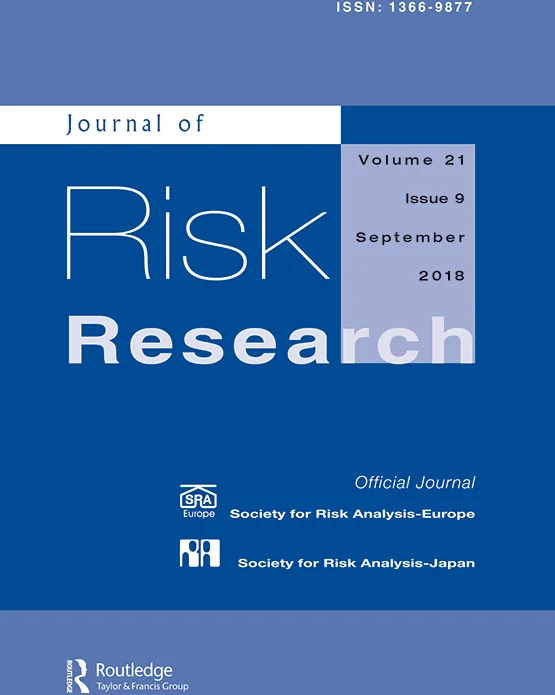评估灾难感知压力的解释变量:对风险研究的启示
IF 1.7
4区 管理学
Q1 SOCIAL SCIENCES, INTERDISCIPLINARY
引用次数: 0
摘要
2019冠状病毒病大流行继续增加社会、经济和心理风险,包括感知压力增加,或者一个人感知压力源的程度和应对压力的能力增加。目前的研究使用在COVID-19大流行期间收集的新数据来评估一系列人口统计和灾害相关的经验变量对感知压力的作用(n = 744)。层次线性回归表明,女性感受到的压力比男性更大,随着年龄和受教育程度的增加,感受到的压力会减少。面临租金/抵押贷款压力、因COVID-19大流行而失业、预期依赖他人以及担心COVID-19对其身体健康、经济和个人关系的持续影响的受访者也会感受到更大的压力。结果为美国居民对COVID-19灾难的多重担忧(即财务、心理和身体健康)带来的风险提供了经验证据。调查结果表明,需要采取政策和立法行动,例如在美国范围内暂停驱逐,以支持遭受疫情多重影响的个人,并减少感知到的压力及其伴随的风险,包括增加的创伤后压力和抑郁症事件。本文章由计算机程序翻译,如有差异,请以英文原文为准。
Assessing explanatory variables of perceived stress to disaster: implications for risk research
Abstract The COVID-19 pandemic continues to increase social, economic, and psychological risks, including increased perceived stress – or the degree to which a person perceives a stressor and their ability to cope with it. The current study uses novel data collected during the COVID-19 pandemic to assess the role of a range of demographic and disaster-related experiential variables on perceived stress (n = 744). Hierarchical linear regression indicates that women experience greater perceived stress than men and as age and educational attainment increase, perceived stress decreases. Respondents experiencing rent/mortgage stress, job loss due to the COVID-19 pandemic, anticipated reliance on others, and worry about ongoing impacts of COVID-19 on their physical health, the economy, and personal relationships also experience increased perceived stress. Results provide empirical evidence of risks stemming from the multiple concerns (i.e., financial, psychological, and physical health) of U.S. residents regarding the COVID-19 disaster. Findings indicate the need for policy and legislative actions, such as the U.S.-wide eviction moratorium, to support individuals suffering from multiple impacts from the pandemic and to reduce perceived stress and its attendant risks including increased incidents of posttraumatic stress and depression.
求助全文
通过发布文献求助,成功后即可免费获取论文全文。
去求助
来源期刊

Journal of Risk Research
SOCIAL SCIENCES, INTERDISCIPLINARY-
CiteScore
12.20
自引率
5.90%
发文量
44
期刊介绍:
The Journal of Risk Research is an international journal that publishes peer-reviewed theoretical and empirical research articles within the risk field from the areas of social, physical and health sciences and engineering, as well as articles related to decision making, regulation and policy issues in all disciplines. Articles will be published in English. The main aims of the Journal of Risk Research are to stimulate intellectual debate, to promote better risk management practices and to contribute to the development of risk management methodologies. Journal of Risk Research is the official journal of the Society for Risk Analysis Europe and the Society for Risk Analysis Japan.
 求助内容:
求助内容: 应助结果提醒方式:
应助结果提醒方式:


